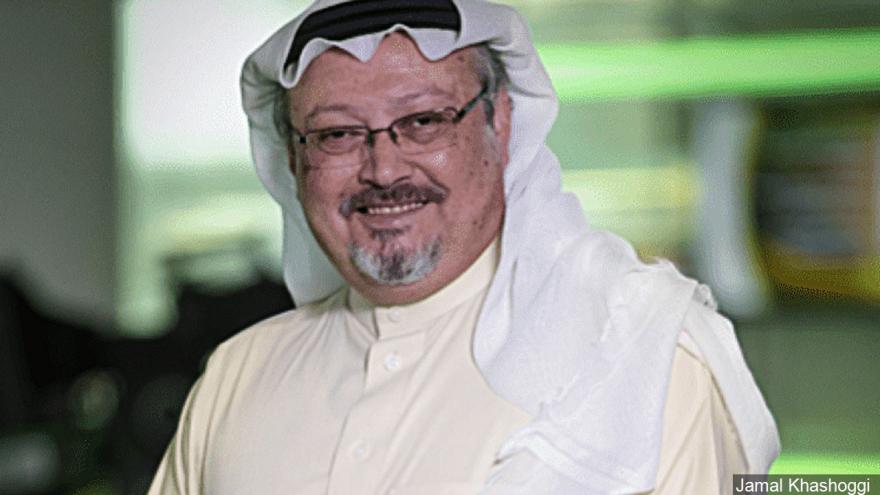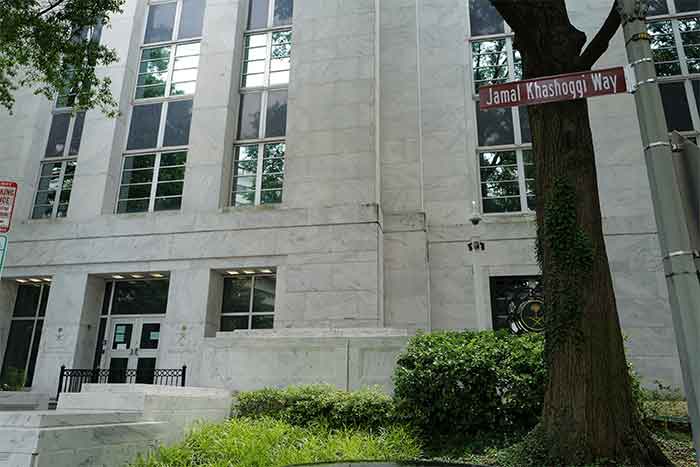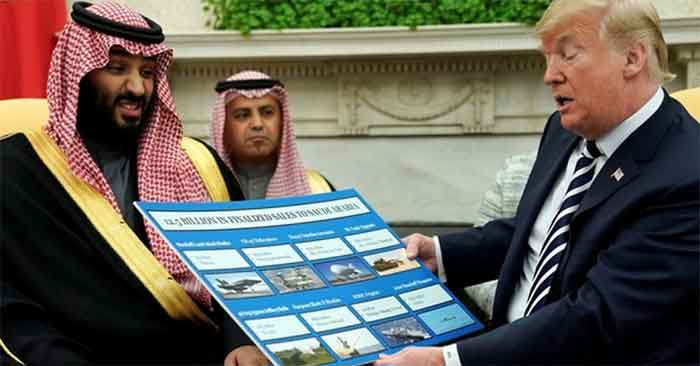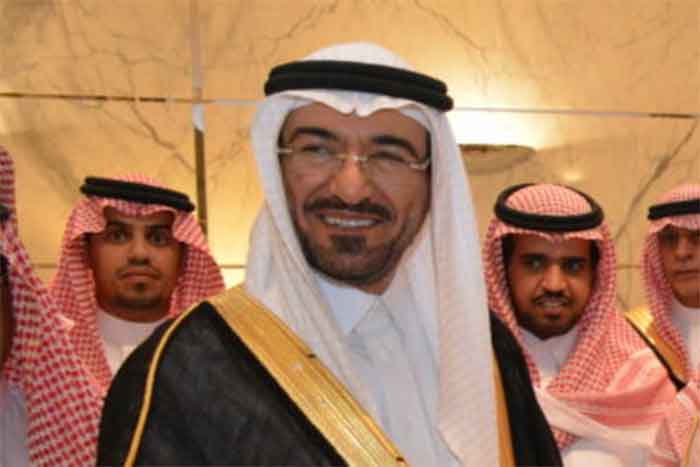
Seventeen days after the October 2 “disappearance” of Jamal Khashoggi, Saudi Arabia officially stated that he was killed in its consulate in Turkey when he went there to collect papers permitting him to marry his Turkish fiancée Hatice Cengiz. The marriage had been fixed for October 3.
Cengiz had waited for hours in vain for Khashoggi to come out of the consulate and informed Reuters about his ‘disappearance’ on October 3. The same day, Saudi Crown Prince Mohammed bin Salman (MbS) told the US news agency Bloomberg that he did not know where the journalist was and that consent would be given to Turkey to conduct an investigation inside the Consulate if it were to ask for one. MbS added that he ‘had nothing to hide’.
On October 4, the Saudi Embassy claimed that the journalist had left the consulate and that it was trying to ascertain his whereabouts. Reports emerged on October 7 that Khashoggi was killed in the consulate, the veracity of which Saudi Arabia angrily denied. The next day, the Saudi Ambassador in Washington, Prince Khalid bin Salman (brother of MbS) sent an unsolicited WhatsApp message to a journalist claiming that Khashoggi had left the consulate. The same day, unnamed Turkish officials told Reuters that Khashoggi had been killed inside the consulate.
On October 9, President Erdogan publicly asked Saudi Arabia to produce CCTV recordings of the journalist leaving the consulate. There was no response. The next day, Turkish officials said that the CCTV footage might have been sent to Riyadh on October 2 itself. On October 11, President Trump pointed out that the journalist was not an American citizen and that if sanctions are imposed Saudi Arabia would take its business elsewhere.
On October 16, CNN quoted an anonymous Turkish official as confirming that the journalist was killed inside the consulate. Trump brought in the theory that ‘rogue killers’ might have done it. The next day, Secretary of State Mike Pompeo went to Saudi Arabia and Turkey. On his return, Pompeo briefed Trump and it was announced that Treasury Secretary Mnuchin would not attend the high profile investment meeting “Davos in the Desert” personally hosted by MbS.
On October 19, Saudi Arabia revealed that Khashoggi was killed after a brawl with consulate officials. Later, an unnamed official claimed that the body was handed over to a local person for disposal. Subsequently, Riyadh asserted that the killing was carried out without the approval of MbS and that his instructions were to bring the journalist to Saudi Arabia.
We may note that the Turkish media was the first to report that Khashoggi had been killed on October 2 inside the Consulate, and that President Trump was the first to advance the theory of ‘rogue killers’ on October 16, three days before Riyadh took that position.
Trump has been saying different things at different times. But there is no doubt about his approach. He wants to do his utmost to preserve the close relations he has established with Saudi Arabia and which he chose for his first foreign visit as President. For him, Saudi Arabia’s purchase of American arms and its plans to invest in the US, not to speak of past investments in his own real estate ventures, are of great importance. His plans to damage Iran’s economy and replace the current Iranian regime with another less unfriendly to the US and Israel need Saudi endorsement. His son-in-law Jared Kushner is a close friend of MbS and it is highly likely that Kushner promoted the elevation of MbS as the Crown Prince, overlooking the claims of other senior princes.
Trump has given different figures for the money the US gets from Saudi Arabia. The highest figures given by him so far are ‘$450 billion’ accounting for 600,000 jobs. There is no question, Trump has made it clear, of losing that quantum of money.
However, Trump has come under pressure from the Congress to punish Riyadh. 40 legislators have written to him; some have threatened that if he does not act Congress will take matters into its own hands. It is too early to say what Trump will do, or will be compelled to do.
While Trump found the Saudi version ‘credible’, Germany, France, the United Kingdom, The Netherlands, and others disagreed with him. Essentially, these countries want an independent enquiry to bring out the full facts. Germany has specifically said that arms supplies should be suspended pending the conclusion of that enquiry. The much bruited about ‘Davos in the Desert’, a huge investment conference hosted by MbS and due to start on October 23, has been deserted by many Western ministers and CEOs. Reluctantly, Trump had to ask his Treasury Secretary to skip it.
The story put out by Riyadh that officials acted without the approval of MbS is not seen as credible by anyone except Trump. Turkey has signalled that it would not permit any ‘cover-up’.
The chief flaw in the Saudi official account is the explanation about the body. An unnamed official has told the media that it was handed over to a local ‘contractor’ to dispose it off. Riyadh will be asked to say more about that ‘contractor’.
Meanwhile, Turkish sources have claimed that the body was cut into pieces by using a bone saw and packed into bags; these bags were either taken to Riyadh or disposed off in the nearby forest. Turkish investigators are searching the forest.
Turkish sources have said that they have recordings of what happened when the journalist was killed in about 11 minutes of his entering the Consulate. The Consul General is heard pleading that the killing should not take place in his presence. The Consul General is back in Saudi Arabia. Further, Turkish sources have claimed that the Turkish staff was asked not to attend office on that fateful October 2.
The US has formally asked Turkey for the tapes and Turkey is likely to give it and make it public. The Congressional and media pressure on Trump will increase if the tapes are released.
It is important to realize that Saudi Arabia is in no position to retaliate if Trump were to suspend the delivery of arms, which are badly need for the ill-starred Saudi military intervention in Yemen. It is generally believed that Riyadh is chasing a mirage of military victory. Any decision to get tough with Trump will divide the royal family.
Trump is not dependent on MbS to the extent he (Trump) seems to indicate. On October 2, before the news of the ‘disappearance’ of Khashoggi caught the attention of the world, Trump addressed a “Make America Great Again” rally in Mississippi. Complaining about the US spending money to protect rich allies, he said:
“We protect Saudi Arabia. Would you say they’re rich? And I love the King … King Salman but I said ‘King, we’re protecting you. You might not be there for two weeks without us. You have to pay for your military.”
Trump is right in believing that on a clear signal from him King Salman will be compelled to clip the wings of the Crown Prince. So far, the King has decided not to do any such clipping of wings and has merely asked MbS to reorganize the Security system that botched up the operation in Istanbul.
In short, Riyadh committed a crime and blunder; its communication strategy, so far, has been an unmitigated disaster. MbS is facing a challenge, to put it mildly.
Ambassador K P Fabian is the author of Diplomacy: Indian Style.
Originally published in IDSA













































